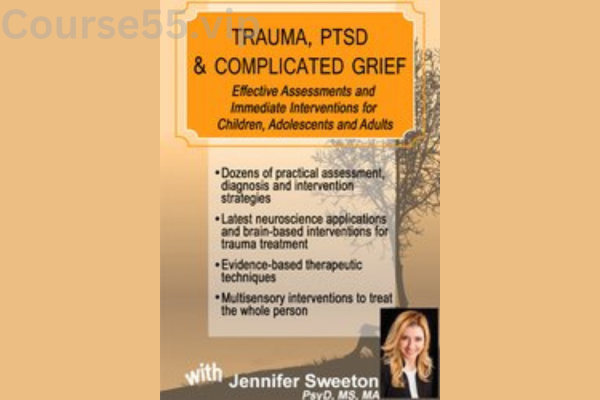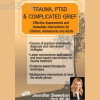-
×
 Ten Best-Ever Anxiety Treatment Techniques By Margaret Wehrenberg - PESI
1 × $23.10
Ten Best-Ever Anxiety Treatment Techniques By Margaret Wehrenberg - PESI
1 × $23.10 -
×
 Self-Regulation & Executive Functioning in Children and Adolescents: Visual Strategies and Hands-on Techniques to Provide Structure, Predictability, and Routines By Kathy Morris
1 × $23.10
Self-Regulation & Executive Functioning in Children and Adolescents: Visual Strategies and Hands-on Techniques to Provide Structure, Predictability, and Routines By Kathy Morris
1 × $23.10 -
×
 Utah Legal and Ethical Issues for Mental Health Clinicians By Susan Lewis - PESI
1 × $23.10
Utah Legal and Ethical Issues for Mental Health Clinicians By Susan Lewis - PESI
1 × $23.10 -
×
 Fast Track 6 Figure Formula By Ray Higdon & Mark Hoverson
1 × $23.10
Fast Track 6 Figure Formula By Ray Higdon & Mark Hoverson
1 × $23.10 -
×
 Advances in Motor Control and Learning for Neurological Rehab By Ben Sidaway - PESI
1 × $23.10
Advances in Motor Control and Learning for Neurological Rehab By Ben Sidaway - PESI
1 × $23.10 -
×
 Orthopedic Challenges: Expert Strategies to Avoid Harm & Enhance Healing By William Mazzocco - PESI
1 × $23.10
Orthopedic Challenges: Expert Strategies to Avoid Harm & Enhance Healing By William Mazzocco - PESI
1 × $23.10 -
×
 Receive By Katrina Ruth
1 × $15.40
Receive By Katrina Ruth
1 × $15.40 -
×
 The Complete Crowdfunding PR System By Salvador Briggman - CrowdCrux
1 × $23.10
The Complete Crowdfunding PR System By Salvador Briggman - CrowdCrux
1 × $23.10 -
×
 Spartan Renko 2.0 Workshop 2017
1 × $23.10
Spartan Renko 2.0 Workshop 2017
1 × $23.10 -
×
 Healthy Hormone Done-For-You By Lorene Sauro
1 × $23.10
Healthy Hormone Done-For-You By Lorene Sauro
1 × $23.10
Trauma, PTSD & Traumatic Grief: Effective Assessments and Immediate Interventions By Jennifer Sweeton – PESI
$219.00 Original price was: $219.00.$23.10Current price is: $23.10.
SKU: C55vip.11371roAsPXBr
Category: Download
Tags: Effective Assessments and Immediate Interventions, Jennifer Sweeton - PESI, PTSD & Traumatic Grief, Trauma, Traumatic Grief
Effective Assessments and Immediate Interventions for Trauma, PTSD, and Traumatic Grief by Jennifer Sweeton – Digital Download!

Trauma, PTSD & Traumatic Grief: Effective Assessments and Immediate Interventions By Jennifer Sweeton – PESI
Overview

The Essential Role of Immediate Psychological Care
Dr. Jennifer Sweeton emphasizes that early psychological interventions are pivotal in alleviating symptoms related to trauma. Research consistently shows that addressing issues promptly, especially in cases of Acute Stress Disorder or PTSD, can result in better long-term outcomes for individuals. For instance, studies indicate that timely intervention provides significant relief, supporting those dealing with overwhelming trauma-related effects.
Sweeton integrates techniques that go beyond symptom management, focusing on enhancing neurogenesis and neuroplasticity in the brain. Neurogenesis is key for recovery, as it facilitates brain adaptation and healing, while neuroplasticity allows individuals to rewire their brains for greater resilience. By incorporating these principles into immediate interventions, Sweeton optimizes the healing process for her clients.
To assist in recovery, Sweeton developed a workbook filled with forty actionable techniques for immediate use. This guide offers a flexible yet structured approach, enabling professionals and clients to begin the healing process as soon as possible, ensuring that the interventions remain effective and adaptable.
Cognitive Therapy for PTSD: A Comprehensive Treatment Framework
When dealing with PTSD, especially from traumatic experiences such as loss, Cognitive Therapy for PTSD (CT-PTSD) is an essential part of Sweeton’s approach. CT-PTSD, developed by experts like Ehlers et al., is recognized as a primary treatment for PTSD, as endorsed by various health organizations, including the National Institute for Health and Clinical Excellence (NICE).
CT-PTSD centers on understanding and reshaping the cognitive patterns that contribute to trauma responses. By identifying negative thought processes, the therapy helps individuals build healthier coping mechanisms, allowing them to reintegrate into life. Key aspects of CT-PTSD include:
-
Cognitive Restructuring: Guiding individuals to recognize and correct distorted beliefs related to themselves and their trauma.
-
Gradual Exposure: Helping individuals confront trauma-related memories in a safe and controlled environment.
-
Emotion Regulation Skills: Teaching techniques to manage overwhelming emotions typically associated with PTSD.
By incorporating CT-PTSD into her practice, Sweeton underscores the importance of using proven, evidence-based therapies that cater to the varied needs of those dealing with trauma and grief.
Personalized Assessment Approaches for Trauma and Loss
Effective assessments are crucial for understanding the cognitive and emotional responses to both expected and traumatic grief. Dr. Sweeton advocates for using specific tools that provide a comprehensive view of an individual’s trauma history, experiences, and needs. These tools not only help with diagnosing PTSD and ASD but also guide the development of tailored interventions for each unique case.
Key assessment tools in trauma and grief contexts include:
-
The PTSD Checklist for DSM-5 (PCL-5): A self-report tool that measures PTSD symptoms and severity.
-
The Impact of Event Scale-Revised (IES-R): A tool to assess the distress caused by traumatic events, known for its predictive validity.
-
The Traumatic Grief Inventory: Specifically used to evaluate symptoms of traumatic grief, offering insights into the complexity of an individual’s grieving process.
These tools help clinicians navigate the intricate nature of trauma and grief, enabling better understanding and more effective intervention strategies. Proper assessment allows therapists to tailor their approaches based on an individual’s coping strengths and weaknesses, ensuring a personalized treatment plan.
Practical Techniques for Healing PTSD
The techniques outlined in Dr. Sweeton’s workbook are rooted in both research and clinical experience. These methods are designed to assist individuals in overcoming PTSD in an actionable way. Some of the highlighted techniques include:
-
Mindfulness Practices: Encouraging present-moment awareness, these techniques significantly reduce anxiety and emotional distress tied to traumatic memories.
-
Breathing Exercises: Simple yet powerful breathing methods help ground individuals during overwhelming emotional experiences, promoting calmness and mental clarity.
-
Journaling: Encouraging individuals to write down their thoughts and feelings helps process trauma and aids in emotional release and understanding.
-
Physical Activity: Regular exercise is crucial for enhancing mood and supporting overall physical health, both of which are important for recovery.
These techniques empower individuals to take control of their healing process. They are designed to be easily accessible, allowing individuals to implement them effectively, even in moments of emotional distress.
Sweeton’s Holistic Approach to Trauma Healing and Resilience
Dr. Sweeton advocates for a holistic and integrated approach to trauma and grief, emphasizing the connection between effective psychological interventions and techniques designed to foster healing and resilience. Her emphasis on immediate interventions challenges the conventional view of therapy as a long-term process. Instead, Sweeton advocates for quick, personalized actions that address specific symptoms and needs.
Drawing from her extensive research and clinical expertise, Sweeton combines various therapeutic modalities that stimulate neurobiological changes in clients, promoting resilience and guiding them toward recovery. Her continuous push for the development of new assessment tools and intervention strategies adapts to the changing landscape of trauma treatment, leading to more effective results and reinforcing the belief that recovery is entirely possible.
Conclusion: Pioneering New Approaches to Trauma Treatment
Dr. Jennifer Sweeton’s contributions to the understanding of trauma, PTSD, and grief provide invaluable insights for both practitioners and those affected by trauma. Through a blend of effective assessments, immediate interventions, and innovative techniques, she offers a comprehensive approach to trauma treatment. Her focus on neurogenesis, resilience-building, and evidence-based therapies represents an advanced and well-rounded perspective on trauma recovery. Sweeton’s work continues to guide both individuals and clinicians, providing hope and practical resources for overcoming the profound impacts of trauma.
Frequently Asked Questions:
Business Model Innovation: We operate a group buying strategy, allowing participants to share costs and access popular courses at reduced prices. This model benefits individuals with limited financial resources, despite concerns from content creators about distribution methods.
Legal Considerations: The legality of our operations involves complex issues. Although we don’t have explicit permission from course creators to resell their content, there are no specific resale restrictions stated at the time of purchase. This ambiguity creates an opportunity for us to provide affordable educational resources.
Quality Control: We ensure that all course materials purchased are identical to those offered directly by the creators. However, it’s important to understand that we are not official providers. As such, our offerings do not include:
– Live coaching calls or sessions with the course author.
– Access to exclusive author-controlled groups or portals.
– Membership in private forums.
– Direct email support from the author or their team.
We aim to reduce the cost barrier in education by offering these courses independently, without the premium services available through official channels. We appreciate your understanding of our unique approach.
Be the first to review “Trauma, PTSD & Traumatic Grief: Effective Assessments and Immediate Interventions By Jennifer Sweeton – PESI” Cancel reply
You must be logged in to post a review.














Reviews
There are no reviews yet.